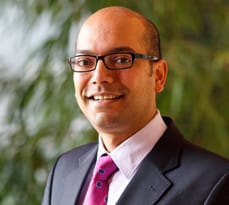A shoe repair shop on a Dutch military base is a good example of the circular economy and frugal innovation, which will be explored at the InnoFrugal UK conference at Cambridge Judge on 27 March 2018.
When one traditionally thinks of a shoe repair shop, they might envision a storefront on a busy shopping street or, in Victorian days, a lonely cobbler stitching away under candlelight.
Yet tucked away on a military base in the town of Soesterberg in the Netherlands is an orthopaedic shoe repair facility born in a different era and dedicated to a very timely mission: to prolong the life of military boots and reduce the need to buy new footwear for troops, in order to save both money and resources.

It’s all part of a “circular economy” initiative of the Dutch Ministry of Defence and its clothing and personal equipment unit known as KPU (Kleding en Persoonsgebonden Uitrustingsbedrif), which has embraced the “frugal economy” movement of making the most of limited resources that began in developing countries like India and is rapidly advancing in the West.
“The Dutch Defence Ministry illustrates how the circular economy is becoming more important in every aspect of society including big business and the military,” says Dr Khaled Soufani, Director of the Circular Economy Centre at Cambridge Judge Business School, who recently wrote about the Dutch circular economy experience in the European Financial Review.
“The Dutch military is now applying the same thinking that people in poorer countries have done out of economic necessity for a long time,” adds his Cambridge Judge colleague, Professor Jaideep Prabhu, co-author of a book entitled Frugal Innovation. “There is a new type of economic necessity now in play in the West: it makes business sense to organise a business in less expensive ways, and extending product life through repair and re-use is a big part of that.”
The concepts of Frugal Innovation and the circular economy will be explored at the first InnoFrugalUK conference, to be held 27 March at Cambridge Judge – the UK’s first conference dedicated to the subject of Frugal Innovation.

The conference will examine how Frugal Innovation can address IT challenges, help startup firms to grow and prosper, and how such technologies as smartphones, cloud computing and 3D printing can advance the principles of the circular economy.
The conference is co-hosted by Cambridge Judge Business School, Ignitho Technologies and The Nordic Frugal Innovation Society, and builds on earlier editions of the conference held annually in Nordic countries.
Speakers will include Khaled Soufani and Jaideep Prabhu, along with Venkata Gandikota, Founder & President of the Nordic Frugal Innovation Society; Roney Soloman, Co-founder & Executive Chairman of Ignitho Technologies; Eben Upton CBE, Founder and CEO of mini-computer firm Raspberry Pi and a graduate of the Executive MBA programme at Cambridge Judge; Mike Herd, Executive Director of the Sussex Innovation Centre at the University of Sussex; and Paul Lewis, Editorial Director at the Financial Times.
Two senior staff from the European Defence Agency (EDA) will be attending the InnoFrugal UK conference, where the Dutch procurement example will be discussed. Beyond boots, the Dutch military now saves 500,000 euros a year by re-using uniforms that still have value; previously old uniforms were collected to prevent misuse in criminal activities and then incinerated, but such bonfires have now been extinguished.
The Circular Economy Centre at Cambridge Judge was recently contracted for a research project with the EDA to explore how circular economy concepts could apply more broadly in the defence sector. The study follows a policy document launched by the European Commission in late 2015 that looks to the circular economy to “boost competitiveness, create jobs and generate sustainable growth”.
The Circular Economy Centre was formed at Cambridge Judge in July 2017, focusing on policy and business topics in both academic and practical contexts. Academics associated with the Centre have published recent journal articles on topics such as recycling in the auto industry, reducing food waste, and “vertical” farming in stacked layers to address food security issues.


